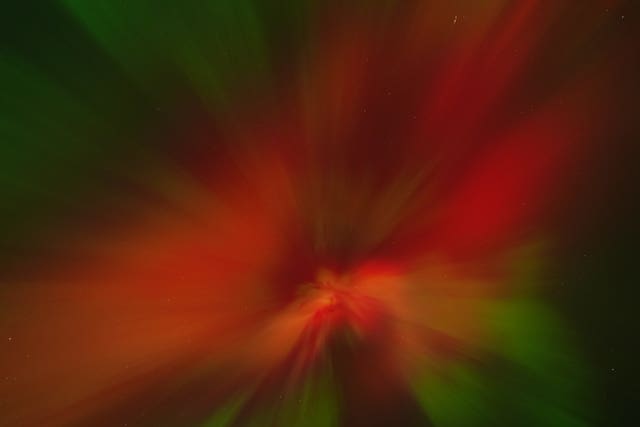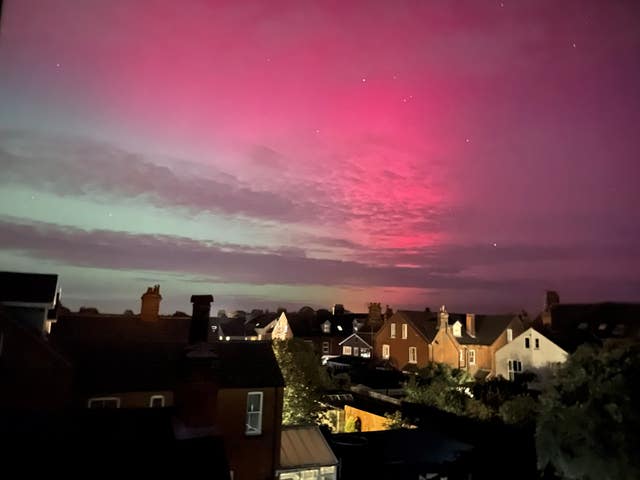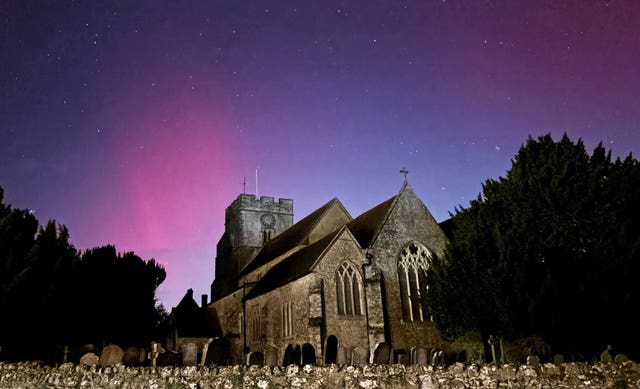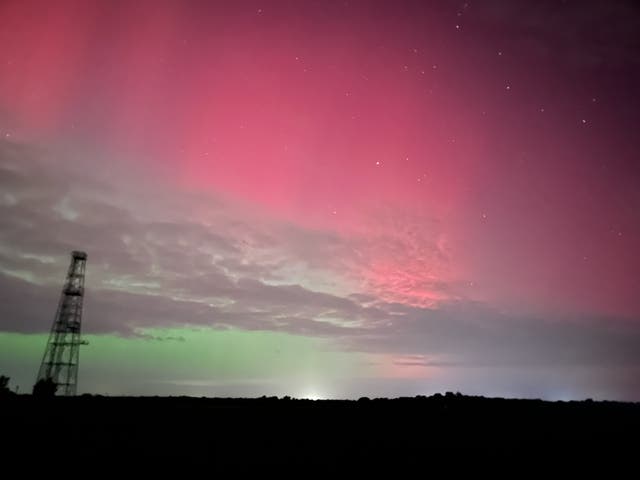The Northern Lights have lit up the skies with bright pink hues visible on Thursday.
Photos of the dazzling natural phenomenon, also known as aurora borealis, were captured across England.
The lights could be seen as far south as Kent and East Anglia, and were also spotted further north in Lancaster by Professor Jim Wild, 49, who captured the Northern Lights from his back garden.

The academic, who researches the aurora and space weather at Lancaster University, told the PA news agency: “My research focuses on the physics of the connections between the Sun and the Earth.
“Over the years, I’ve been to the Arctic Circle several times to make measurements of the aurora, but it’s really special to see the northern lights from your back garden with your whole family.”

The Met Office said relatively clear skies were forecast for much of the UK, creating a “decent chance of visibility”.
A spokesman for the forecaster said there had been “more space weather events in recent months”, including the Northern Lights, because the sun was nearing the peak of its solar cycle.

Met Office spokesman Stephen Dixon said there was a chance of some visible auroras across parts of the UK on Thursday night and into the early hours of Friday.
The auroras on Earth, which are most commonly seen over high polar latitudes but can spread south, are chiefly influenced by geomagnetic storms which originate from activity on the Sun.

The sun works on a cycle of around 11 years called the solar cycle – with peak sunspot activity on the surface of the Sun referred to as solar maximum.
Sunspots give the potential for Earth-directed releases of large bursts of energy, called coronal mass ejections, which can lead to aurora visibility.
Aurora displays occur when charged particles collide with gases in the Earth’s atmosphere around the magnetic poles.
As they collide, light is emitted at various wavelengths, creating colourful displays in the sky.





Why are you making commenting on The National only available to subscribers?
We know there are thousands of National readers who want to debate, argue and go back and forth in the comments section of our stories. We’ve got the most informed readers in Scotland, asking each other the big questions about the future of our country.
Unfortunately, though, these important debates are being spoiled by a vocal minority of trolls who aren’t really interested in the issues, try to derail the conversations, register under fake names, and post vile abuse.
So that’s why we’ve decided to make the ability to comment only available to our paying subscribers. That way, all the trolls who post abuse on our website will have to pay if they want to join the debate – and risk a permanent ban from the account that they subscribe with.
The conversation will go back to what it should be about – people who care passionately about the issues, but disagree constructively on what we should do about them. Let’s get that debate started!
Callum Baird, Editor of The National
Comments: Our rules
We want our comments to be a lively and valuable part of our community - a place where readers can debate and engage with the most important local issues. The ability to comment on our stories is a privilege, not a right, however, and that privilege may be withdrawn if it is abused or misused.
Please report any comments that break our rules.
Read the rules here